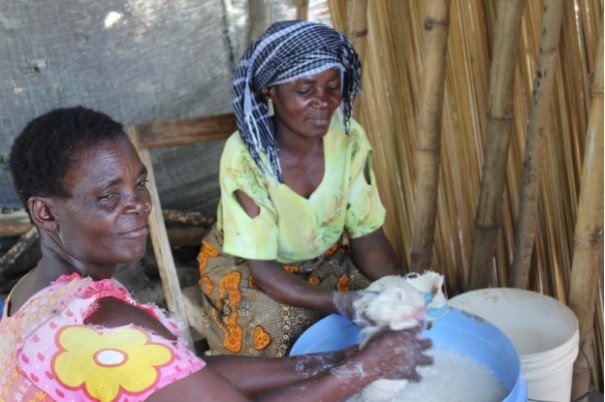
In Praise of a Morning Tipple

In Praise of a Morning Tipple
Kindi in Ukerewe
Kindi, like most porridges, is consumed in the morning. Unlike most porridges, however, it contains alcohol. Lots of alcohol. Unlike most porridges, too, its consumption is limited to a specific day: Sunday. Every Sunday morning at a little bamboo shack near the southern shore of Ukerewe, the small island in Lake Victoria where I have spent the past two years, a posse of nonconformists shuns the overtures of the charlatans who run the island’s churches and gets mildly but pleasantly drunk.
On my first visit to the shack, which sits in a dusty yard in the shade of a mango tree, I am joined at a low wooden table by a teacher, a fisherman, a house painter, and a woman widely reputed to be a witch who also clears drainage ditches for the local council. In a neighboring shack, the brewers, two weathered women in torn blouses and wraparound skirts, stir the thick white millet and maize gruel before straining it through a cloth into a plastic thermos. A whole flask costs about $0.30 and, having fermented for two days during the week, two flaskfuls of kindi are sufficient to quench the thirst of our party of five.
In my younger years I was in awe of morning drinking. Observing French or Spanish men in suits or overalls stopping in a café for a beer or anis on their way to work, I had, depending on how puritanical I was feeling, either worried for their mental health or admired their virility. But as I have surrendered to the inevitable middle-age increase in alcohol intake, the appeal of a morning tipple, although still slightly illicit, has grown.
In the 1980s there was an advertisement on British TV for a porridge called Ready Brek, which showed a young boy walking to school on a cold morning protected by the warm, radioactive-looking glow bestowed on him by his cereal. As I emerge from the shack into the blazing equatorial sunlight, full of enthusiasm for the day ahead, it occurs to me that in kindi I have found a Ready Brek for grown-ups.